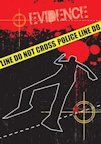In 1890 the U.S. Census declared that wilderness no longer existed in the continental United States. And this announcement provoked the first, public debate in this country between the fledgling conservationist-naturalist movement on the one hand, and the proponents of unrestrained, economic growth on the other. This debate continues in the present day except now it has taken on a global perspective known as Global Warming, but the two sides – conservation versus development – haven’t really changed their respective positions at all. And the reason the debate is so rancorous and unending is that neither side seems willing to engage in an effort to find some kind of compromise middle ground which will allow us to preserve part of what is still natural while, at the same time, giving economic development incentives to spread.
This same profile – two sides unwilling to meet somewhere in the middle and compromise over basic goals – exists in the argument over guns and, more specifically, the argument over violence caused by guns. On the one hand we have seen a recent growth in the size and activity of groups and organizations dedicated to reducing gun violence; on the other we have an entrenched and well-organized pro-gun community which denies that guns are responsible for any violence at all. Or if there is a bit of violence that results from someone using a gun in an inappropriate way (Sandy Hook, Pulse, et. al.,) it’s a price we need to pay because of the value of gun ownership in terms of history, tradition, freedom, sport and most of all, self-defense.
But what about all those surveys which show that a whopping super-majority of Americans and even a substantial majority of gun owners support the idea of ‘sensible’ restrictions on guns? The latest polls disclose a near-90% positive response to the question of whether background checks should be conducted on all transfers of guns and even four out of fine gun owners, according to the recent surveys, also endorse this particular form of ‘sensible’ restrictions on ownership of guns. So if just about everyone agrees that a ‘sensible’ strategy like universal background checks is a good thing, how come all these sensible folks, particularly gun-owning sensible folks, don’t show up to vote for expanded background checks whenever the issue appears on a state-level ballot or is the subject of a debate on Capitol Hill? Yes, California passed a law mandating background checks for ammo purchases, but a ballot initiative in Maine to extend background checks on gun transfers failed.
So where are all these ‘sensible’ gun owners that the gun violence prevention (GVP) community will tell you really exist? The truth is that their existence is more apparent than real. And the reason it’s more apparent is because not one of those surveys which keeps discovering the existence of all those sensible gun owners ever asks the crucial follow-up question which is: Do you support the NRA? Because if the polls did ask that question I guarantee you that the same four out of five gun owners who say they are in favor of expanded background checks would also state that they support America’s ‘oldest’ civil-rights organization, whether they are NRA members or not.
And guess what? Back in August the NRA announced unequivocally and without reservation of any kind the organization’s total and unalterable opposition to expanding background checks, “because background checks don’t stop criminals from getting firearms, because some proposals to do so would deprive individuals of due process of law, and because NRA opposes firearm registration.” And that’s that.
If one were to go back and ask all those ‘sensible’ gun owners whether they agreed with the NRA’s stance on background checks they would probably say ‘no.’ But if you were to then ask them whether this disagreement would make them withdraw their support for the NRA they would stare at you in shock and reply, “Who’s going to support my right to own a gun? And that last statement is the reason why the notion of the ‘sensible’ gun owner is a myth.




Recent Comments